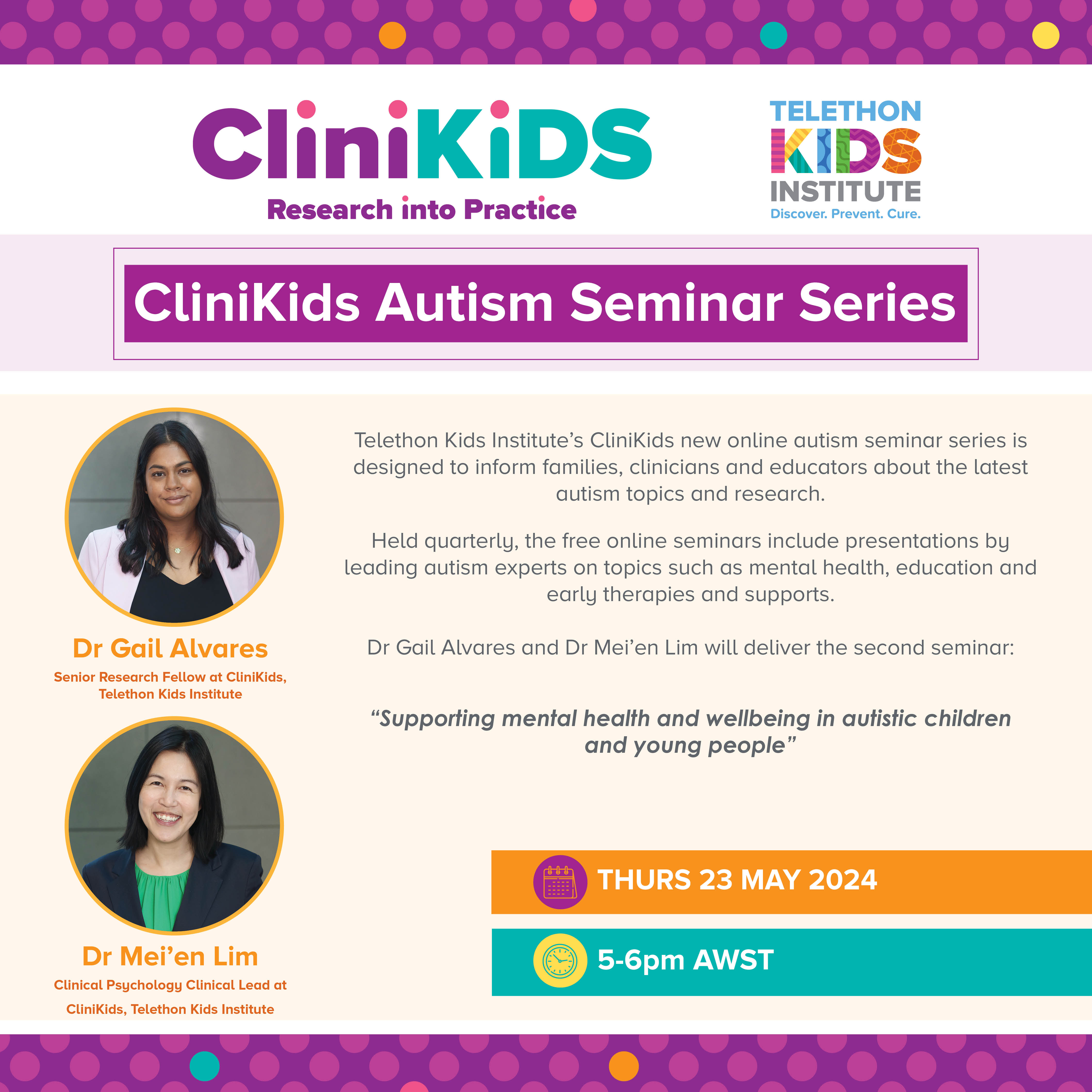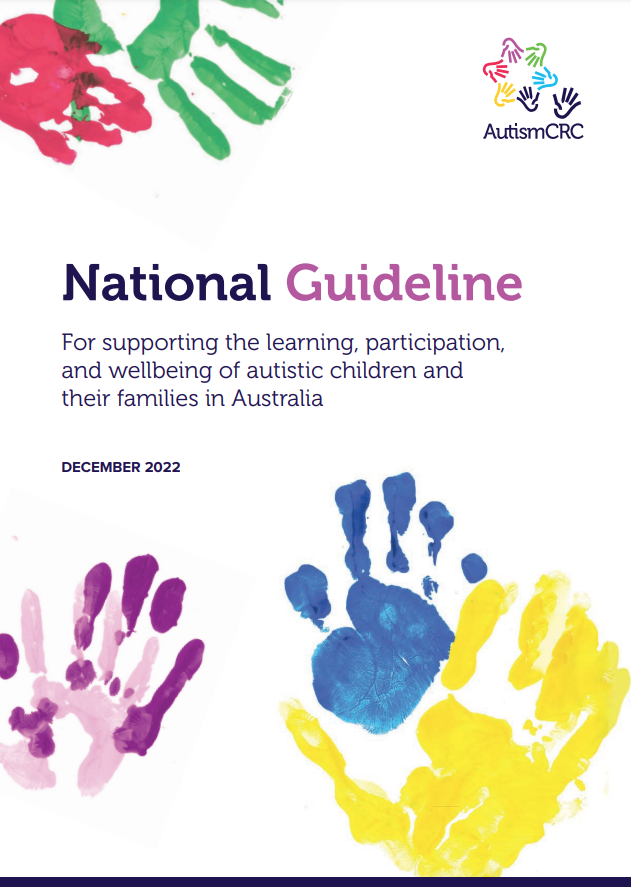Search

News & Events
Mental health seminarHere you will find follow up information from our autism seminar on mental health and autism.

News & Events
Supporting autistic children guideline - short courseCliniKids has partnered with Autism CRC to deliver an online self-paced short course which explores the Recommendations included within the National Guideline for supporting the learning, participation, and wellbeing of autistic children and their families in Australia.

News & Events
PACT now available via telehealthPaediatric Autism Communication Therapy is now available at CliniKids via telehealth.

News & Events
Frangipani Family DayFrangipani Family Day is an opportunity for CliniKids to celebrate the families we engage with through our clinical services and research.

Our team is comprised of well experienced clinicians who can support your child and family.
Research
‘It depends entirely on the nature of those supports’: Community perceptions of the appropriateness of early support services for autistic childrenWe do not know much about what support services people think are okay for young autistic children. This study was a survey of 253 people. We asked autistic adults, parents, and professionals from Australia and New Zealand whether they thought it was okay to provide support services to autistic children.
Research
Absence of association between maternal adverse events and long-term gut microbiome outcomes in the Australian autism biobankMaternal immune activation and prenatal maternal stress are well-studied risk factors for psychiatric conditions such as autism and schizophrenia. Animal studies have proposed the gut microbiome as a mechanism underlying this association and have found that risk factor-related gut microbiome alterations persist in the adult offspring.
Research
Parent-reported atypical development in the first year of life and age of autism diagnosisThis study examined whether parent-reported atypical development in their child's first year was associated with age of diagnosis and age when parents first needed to consult a specialist about their child's development.
Research
Neurodevelopmental outcomes in children after prenatal marijuana exposureThe effect of prenatal marijuana exposure on child neurodevelopment remains poorly understood. Prior studies have demonstrated inconsistent results.
